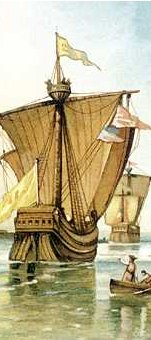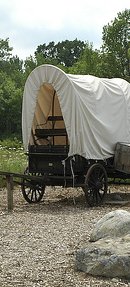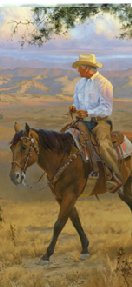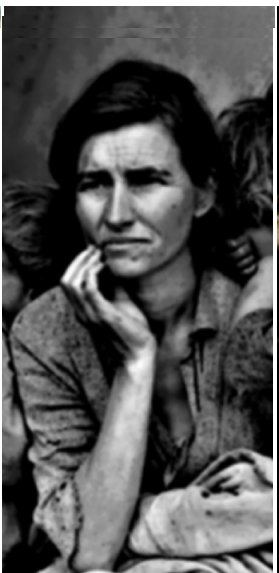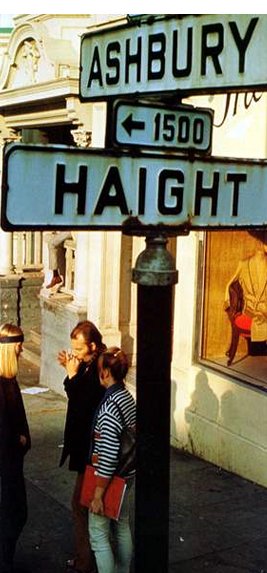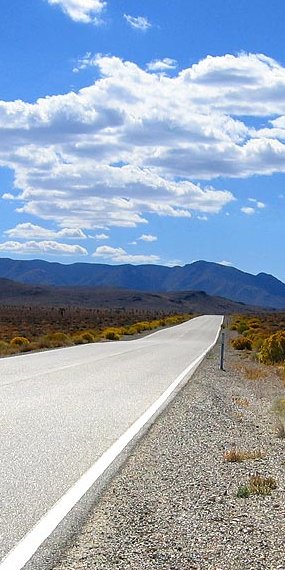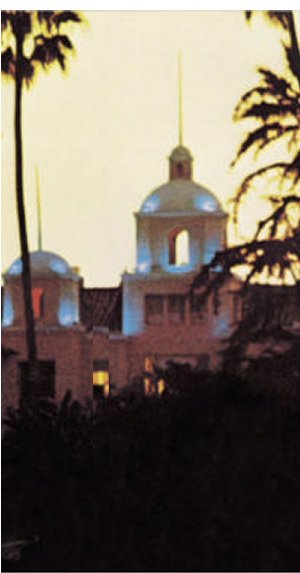California
in the civil war Austen Greene
Elijah R. Kennedy was born in the Eastern United
States, and moved to California
as a young adult to practice law. He lived in California
during the lead up to the Civil War, and witnessed first-hand the ��secessionist
conspiracy�� in California.
He eventually moved back to the East to live in New York.
In New York, he abandoned his
profession as a lawyer in favor of writing historical non-fiction.
In The Contest for California:
How Colonel E.D. Baker Saved the Pacific States to
the Union, Elijah R. Kennedy tells the story of the Pacific States leading
up to the Civil War. According to
Kennedy, there was a sizeable group of Democrats that wished to have California
join the Confederacy. He contends
that this could have changed the course of the war, and it was only through the
efforts of Colonel Baker that California
stayed in the Union. However, when a young college
professor asked, ��who was Baker?
What did he do to get in here?��1
upon seeing a statue dedicated to Baker, Kennedy began to fear that Baker��s
accomplishments were becoming forgotten.
Thus he laid forth his plan, to dedicate a book to describing the
conditions in California�Xand how
Baker manipulated them for the Union��s benefit�Xso that
Baker would be remembered in history as the war hero he was.
Starting out his volume slowly,
Kennedy describes the unique conditions in California
during the mid 19th century.
He depicts the excessive population of young adventurous men brought on
by the lure of gold, and the essential lawlessness that resulted. Then, focusing on California��s
isolation from the eastern states, Kennedy states how ��[California]
was out of the reach of railroads or unbroken steam navigation.��2
He emphasizes that California was
essentially free from Northern control, and thus could have made it��s own decision in the Civil War without fear of being
stopped by Union soldiers. In his
mind, the Union would have had no troops to spare
against the West while being preoccupied with the South. They would have simply ignored California��s
rebellion until the war was over.
Kennedy, however, theorized that the Union would
never have had a chance to stop California,
as without it in the Union the war��s outcome would have
differed significantly from the actuality.
Moving into the theoretical,
Kennedy gives his opinion of what could have been the fate of the country if California
had seceded, while simultaneously setting up the character of Baker. He claims that if California
had seceded, ��it is impossible to see where forces to suppress a rebellion on
the Pacific Slope could have been found.��3
Without the necessary troops, the North would have no way to enforce Union
membership on California, and
thus be forced in accepting the state��s decision. Even an independent California
could have changed the war��s course, stripping the Union
of extra troops and supplies; a California
that joined the Confederacy would have proved devastating, almost certainly
leading to a southern victory.
Afterwards, he tells of Baker��s experiences in the East, and his journey
to become a senator in the West. Baker was denied a cabinet position in
President Pierce��s administration because of
political bias, even though he was highly qualified for the position. Disillusioned, he angrily declared that
he would never return to the East unless he became a Senator in the West. Baker��s success as a public speaker made
feasible his seemingly exaggerated claim, as he quickly rose to western prominence.
In the third section of his work, Kennedy
successfully illustrates Baker��s triumph in securing California,
and thus the Pacific States,
for the Union.
He tells of Baker��s speeches at the Senate, friendship with the future
President Lincoln, and loyalty to the Union. A lifelong friend of Lincoln,
Baker quickly joined the Republican Party after it was formed. Soon afterwards, Baker defeated his
Democratic opponent and won a Senate seat in Oregon,
forging a Republican beachhead in the western Democratic stronghold. However, even though he was a senator in
Oregon, Baker held great
influence throughout the West�Xmainly because of his ability to understand his
opponents. Kennedy��s portrayal of
Baker shows a brilliant orator and a mediator, who was able to ��sympathize with
the Democrats�� and compromise with them on issues. 4 Yet despite his
empathy for the South, he maintained an unwavering loyalty to the Union. His control over the Pacific prevented
the rival party of William M. Gwin from forming a
Confederate stronghold in California. Though Kennedy assures readers that most
Californians were not southern sympathizers, many of them were politically
apathetic and would have done nothing to stop Gwin
from leading a rebellion.
Nearing the conclusion of his
story, Kennedy wraps up the piece with Baker��s tragic death in battle, and the
effects of his death. Baker died in
one of the earliest battles of the Civil War, the battle of Ball��s Bluff,
shortly after being promoted to General in recognition of his services. Baker was still a serving senator at the
time of his death, and the only senator to die in battle during the Civil
War�Xconfirmation of his bravery and patriotism, when compared to most of the
other politicians of his time.
Baker��s death was widely mourned, according to Kennedy, who describes a
grieving coast, with people all along the Pacific holding memorial services for
Colonel Baker. He reflects that the
coast would sorely miss the ��warrior and statesman, wise in counsel�� who led
them in the war of words, fighting the pro-slavery factions.5
He then describes the pledge made at Baker��s memorial, that his successes
should never be forgotten.
Even though Kennedy wrote in 1912,
he was not a progressive historiographer.
The Contest for California is closest in ideas to progressivism,
due to its emphasis on the sectional divisions between the North and South,
East and West. However, it lacks
too many elements of progressivism to be classified as such, since there is no
mention of any kind of class struggle or socio-economic strife. Kennedy makes no distinction between the
rich and poor in California, or
the different races; neither does he imply a different opinion being held by
those from different classes or cultures.
Additionally, Kennedy spent most of his adult life in the pre-progressive
era. Already at an old age when his
book was published in 1912, the progressive movement swept over and left him
behind.
Elijah R Kennedy was living in California
during the time leading up to the war, and thus had a clear view of the
situation at the time. He grew up
in the East, but moved to California
and worked as a lawyer, participating in several of the events he
describes. He remained a staunch
Union supporter and great admirer of Baker. Being a Union loyalist, Kennedy��s
perspective is slightly biased, since his suspicion of Southern treachery could
be merely because of his anger at the southerners�� secession. However, given the age of the book and
the closeness to the event in question, Kennedy��s facts and details are almost
certainly very accurate, and not reliant upon other sources or questionable
witnesses. He witnessed first hand
the status of pre-civil war California,
and can describe the conditions with conviction. His status as a primary source gives his
words more authenticity, since he is using his own knowledge instead of merely
summarizing the work of other authors.
Kennedy��s thesis revolves around
his belief that were it not for Baker��s efforts, Gwin would have succeeded in gaining California,
and thus the West, for the Confederacy.
Through citations of facts and the statements of politicians, he shows
that such an occurrence was possible, and would have disastrously changed the
course of history for the Union. However, in making his thesis, Kennedy
assumes that the Democratic secessionist minority would have been successful,
had they not been interfered with. Much of his evidence comes from letters
written by Confederate leaders who were certain that ��California�Kwould
be on their side.��6 These letters can be
attributed to the South��s overconfidence in their public support, which they
had in eastern states as well.
Though it is entirely possible, it is not a definite truth; the California
public might have seen the attempt and, feeling a surge of patriotic loyalty
stopped Gwin from completing his goal.
A large portion of Kennedy��s work is dedicated to
those who paved the path for Baker, such as Senator David C. Broderick. Despite being a Democrat, Broderick was
a staunch supporter of ��free soil�� in California,
and his leadership helped sway many Californians away from the larger
pro-slavery faction of the Party.
However, after defeating his rival Gwin to
gain the California Senate position, Broderick became engaged in a violent
conflict. One of his former
friends, Judge David Terry, lost an election due to his support of slavery, and
blamed Broderick for his loss; Broderick was killed in the ensuing duel. Kennedy, however, maintains that
Broderick��s former friend was roused to anger by Gwin��s
manipulations, eliminating his chief rival. Also, Kennedy describes the supposed
rigging of the duel, as the pistols used were of a rare type chosen by
Terry. Terry spent time practicing
with the pistols beforehand, and discovered that one was faulty; the faulty one
was given to Broderick, effectively ensuring his death. Kennedy��s view of Gwin
as an accomplice to murder complements his portrayal as a southern secessionist
conspirator, eager to overthrow the majority.
Gwin is a
key character in the developments Kennedy describes, serving mainly as an
antagonist of sorts. Gwin led his minority secessionist group against
Broderick�Xthe leader of the anti-slavery democratic faction�Xand Colonel Baker,
the leading Republican in the Pacific states. His plots to have California
join the Confederacy or at least declare independence were
foiled by his two major opponents.
He gained revenge against Broderick by having him killed, but Broderick
was only replaced by the stronger politician and�Xin Kennedy��s mind�Xmore
righteous individual, Baker. When
the members of Broderick��s democratic faction supported Baker, Gwin finally lost his hold on California;
he was unable to persuade the state legislature to secede, and failed to stop Lincoln
from winning the Pacific in the presidential election of 1860. California
was then free to fully support the Union, providing the
essential support needed for the northern victory in the Civil War.
Kennedy demonstrates his points
through various anecdotes of events during the time that together form a
picture of Civil War era California. These are often seemingly unrelated
stories, yet upon examination the connection between them becomes visible. When Kennedy wishes to demonstrate the
chaotic atmosphere, the perfect way he does so is telling the story of two men
who managed to get the governor to pardon their friend for murder, by stealing
a completely unrelated petition signed by an entire town, and transferring the
names onto a petition for a pardon7. Though humorous and entertaining, this
story reveals a confusion and lack of communication in the government that
prevents any adequate form of control of miscreants. Each anecdote reveals another section of
California society, as Kennedy
slowly reveals the conditions that he believes were ripe for secession. As the sketches pile up, secession
begins to seem more and more likely, until the reader is confounded as to why California
didn��t join the Confederacy. After
raising this question, Kennedy finally answers it with another story�Xthis one a
much longer tale of Colonel Baker.
Contemporary criticism of Kennedy��s
work applauded him for his conviction and portrayal of Baker, yet questioned
whether he exaggerated. As writer
and future ambassador William E. Dodd stated, ��no
Confederate flag was ever actually unfurled in California.��8
Though he doesn��t question that some did desire to separate California
from the Union, he validly points out that secession was
never officially suggested, since Gwin��s plan never
advanced fully enough. Despite his
belief that Kennedy utilized hyperbole, Dodd commended the writing for its
portrayal of a ��noble leader.�� Dodd also admired how certain Kennedy was in his
belief in Baker��s heroics, since Kennedy��s writing shows no qualms his complete
praise�Xwithout ever highlighting any negative aspects of Baker��s
character. He also shared Kennedy��s
belief that many easterners knew too little about Colonel Baker, and agreed
that the importance of Baker��s successes should be better taught in eastern schools.
Though Kennedy at some points
exaggerates the direness of the situation in California,
he does successfully demonstrate the importance of Baker��s work. While it seems inaccurate that many
Californians were southern sympathizers, it simultaneously seems entirely
possible that a powerful minority could gain control of the state and start a
rebellion. This condition would be
especially possible in a place like California, where most of the population
was ��young gold-seekers��, who probably were more concerned about their next
meal than taking time to vote.9 In addition, the wealthy merchants
were the most politically influential, and they would be the ones with the most
to gain by being freed of government taxes, restrictions, and regulations. Therefore, the point
that Baker��s skills were important remains intact, though seeming slightly less
essential. Despite the
flaws, Kennedy successfully portrays Baker��s loyalty to the Union
and talent as a speaker as vital to the success of the North maintaining
control of California.
According to Kennedy, the
conditions in California
developed completely independently of the rest of the United
States.
He claims that the population diversity created by the Gold Rush existed
nowhere else in the country and the style of government only showed up in a few
frontier states. However, many of
the occurrences in the book were completely initiated by the Eastern
United States. Most of
the civil war debates were unimportant to Californians; issues like states
right didn��t affect California,
which had only recently become a state.
Furthermore, slavery was widely opposed by Californians, who feared that
slaves would arrive in masses to mine all the gold for wealthy southern
planters. Though the issues were
unimportant to them, Californians did care about a possible war�Xnearly all had
family in the East, and most still had some ties to either North or South. The conflict in the East thus divided California
politics into either pro Union or pro Confederate
groups, with the only middle ground being those seeking complete independence.
10
The occurrences in California
were distinctive from the rest of the country, due to the Gold Rush creating a
unique demographic situation. The
diverse population contained original Mexican inhabitants, new American
settlers from all of the Eastern United States, and
immigrants from Asian nations across the pacific. This variety of individuals produced
conflicting ideals and a mixture of cultures previously unseen in the country.
Furthermore, the overpopulation of young men�Xand scarcity of women�Xcaused a
distinctive sort of ��organized lawlessness,�� much like the captivating tales of
the Wild West of easterners�� imaginations. 11 These adventurers
contributed to a general sense of anarchy and disorder, with very little
influence from the nation��s government.
However, despite it��s isolation from the East, Kennedy shows that if California
had seceded, the rest of the West would have soon followed, and the North would
have been overwhelmed and unable to defeat the Confederacy.
In general, Kennedy is
successful in his mission to tell the seemingly forgotten story of Colonel
Baker, and shows him as a hero of the civil war. His book serves as a reminder of the way
history could have changed, without the actions of a single man. It not only extols a champion, it
inspires readers to great acts, encouraging them of a person��s power to shape
events. Furthermore, Kennedy��s
style of writing through various anecdotes keeps the reader interested and
entertained. His dry sense of humor at the strange Californian events shows a
bemusement at a peculiar way of life, without condemning those who lived
through it.
1. Kennedy, Elijah R. The Contest for California in 1861.
Boston: Houghton Mifflin
Company, 1912. ii
2. Kennedy 29
3. Kennedy 85
4. Kennedy 147
5. Kennedy 290
6. Kennedy 68
7. Kennedy 18
8. Dodd, William E. ��California
in the Civil War��. The Dial. August 1,
1912
9. Kennedy 13
10. Kennedy 56
11. Kennedy 121


